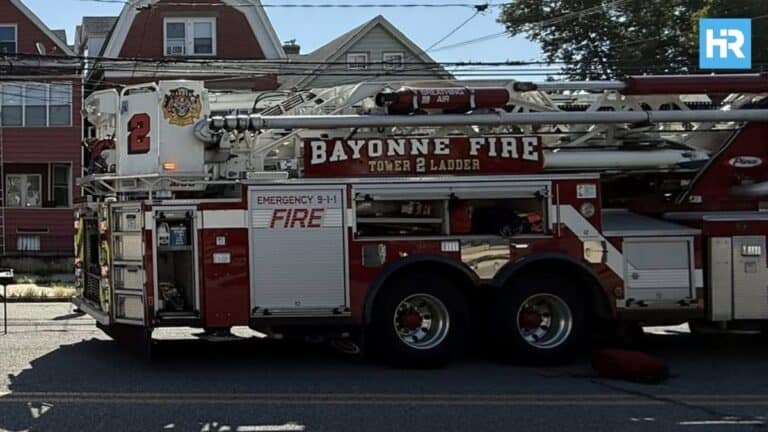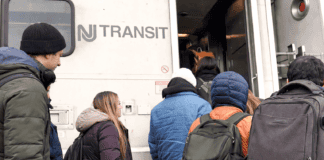
During the Bayonne City Council meeting on October 15, 2025, residents raised strong concerns about a recent fire at a scrap metal yard on East Second Street. The discussion dominated the meeting, as residents called for tighter safety measures and questioned the city’s emergency response.
- Residents demanded safety reforms and possible closure of a Bayonne scrap yard after a fire raised serious health and access concerns.
- City officials said they are working with state lawmakers to seek stronger regulations and enforcement options.
- The council also reviewed new housing projects, tax agreements, and updates to city contracts and infrastructure.
Residents Raise Concerns About Fire Safety and Emergency Alerts
Residents commended the Bayonne Fire Department for its prompt response but reported that firefighters struggled to reach the flames; there was a locked gate that delayed their access to the burning site. Smoke from the fire spread into nearby homes, forcing people to evacuate. One resident warned that “someone’s going to get killed” if stronger action is not taken.
Gene Perry, who lives near the site, said smoke from the fire poured into a nearby housing complex. Although later testing showed no toxic danger, he said residents remained worried about future risks. Tom Solari described the site as a “death trap,” saying firefighters could reach it only through a narrow drive.
The fire also raised concerns about communication. Sharon Ashe-Nadrowski, a former councilwoman and mayoral candidate, criticized the lack of an Office of Emergency Management (OEM) alert during the fire. She said an alert could have told residents to close windows or stay inside until the smoke cleared.
OEM Coordinator Ed “Junior” Ferrante explained that his office had posted updates on social media and coordinated with the Hudson Regional Health Commission (HRHC). Ferrante said the HRHC was notified by the City of Bayonne and then informed the Department of Environmental Protection (DEP). HRHC set up air monitoring stations both inside the scrap yard property and at First Street and Lexington Avenue. They monitored air quality throughout the event and reported “no actionable findings of toxicity in the smoke.”
Councilmembers Discuss Next Steps and Legal Limits
Councilman Neil Carroll, who has spoken out against the facility before, agreed that the scrap yard should not be located in a residential area. He said, however, that the city is limited in what it can legally do. Carroll explained that inspectors regularly visit the site and issue violations when they find problems.
Council President Gary La Pelusa added that the city cannot close the site on its own under current laws. He said he plans to work with state legislators to change the law so the city could take stronger action in the future.
The council acknowledged the residents’ concerns and agreed that the issue requires cooperation between city and state officials. Members said they are exploring sustainable possible changes to zoning and safety rules.
Council Reviews Housing and Redevelopment Plans
The meeting also focused on several development and financial matters across the city. An ordinance was introduced for a redevelopment plan at 626–628 Avenue E, proposing a five-story building with 20 residential units. A public hearing on the plan is scheduled for November 12, 2025.
Council members said the project could help address the city’s need for workforce housing, but stressed that new development must also respect community needs. The discussion reflected broader concerns about the rising cost of housing in Bayonne.
The council also reviewed a 25-year Payment in Lieu of Taxes (PILOT) agreement with Chanty 5 Urban Renewal LLC for a nine-story building that will include a pocket park. Members questioned how long-term tax deals might affect the city’s financial flexibility and mentioned that the project does not include affordable housing units. Some expressed concern that market-rate rents may exceed what many residents can afford.
City Faces Rising Costs and Health Plan Updates
City officials also discussed the impact of rising expenses, including a 50% increase in insurance costs over the past two and a half years. To manage spending, the council approved a new self-insured health plan with Aetna. The contract, which will last for one year and include monthly performance reviews, aims to give the city more control over claims and spending.
Council members said the new plan could help the city identify problems faster and save money in the long run.
Infrastructure and Redevelopment Resolutions
The council passed several resolutions related to redevelopment, traffic control, and infrastructure projects — all of which included special emergency appropriations, updates to redevelopment designations, and cost-sharing agreements for installing new traffic lights.
They also voted to add more funding to the East 25th Street Bridge replacement project. The work had slowed after the previous contractor went bankrupt. City officials said the new funding would keep the project on track. The bridge is considered essential for safe travel, especially for residents with limited mobility and those who rely on it for daily access.









